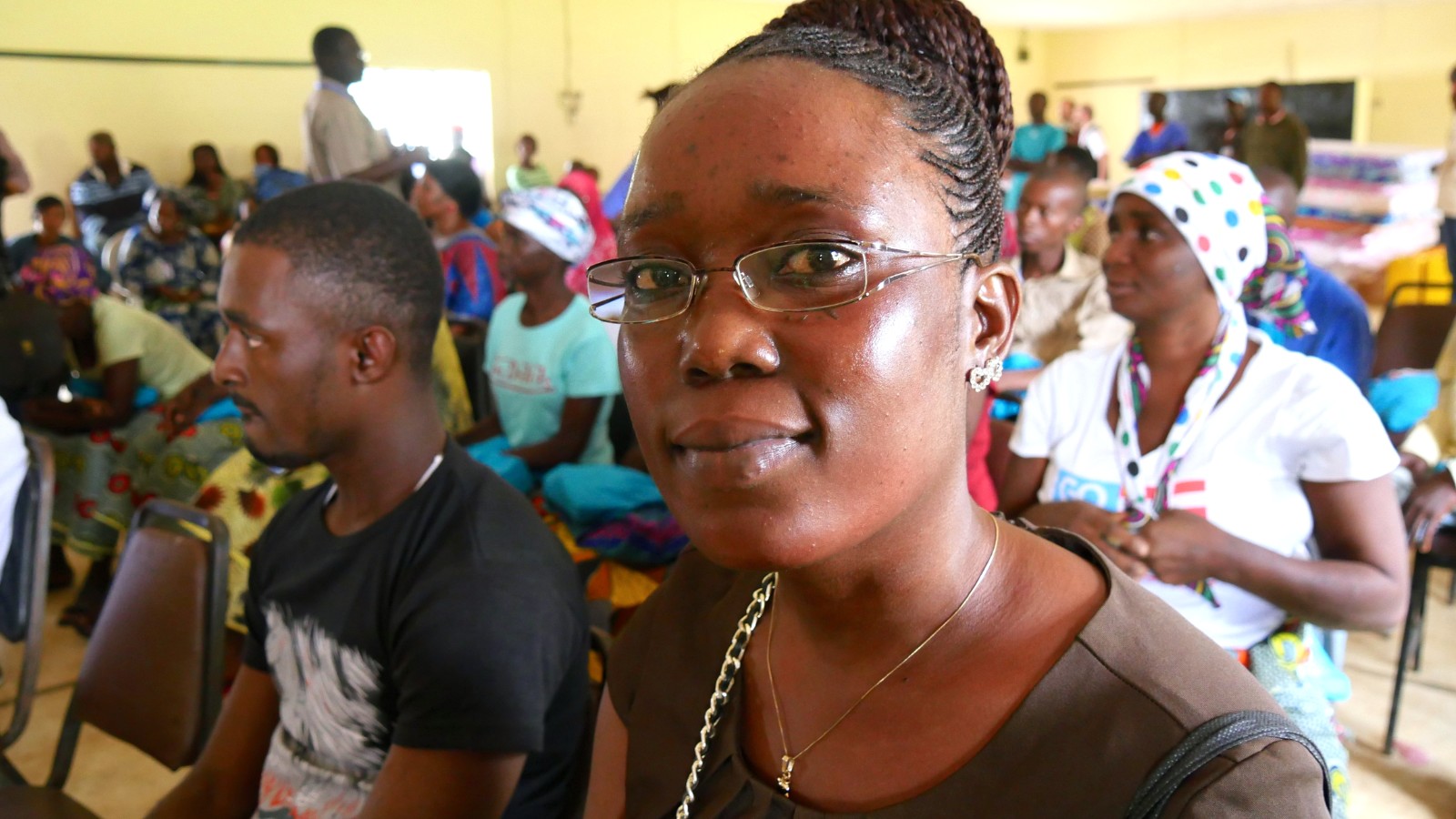Rebecca Johnson worked as a nurse at an Ebola treatment center in Sierra Leone before contracting the virus herself. She recovered and decided to start a non-governmental organization, Pink Cross, to help other Ebola survivors. The views expressed in this commentary are solely those of the writer.
Freetown, Sierra Leone (CNN)I started working at the Ebola treatment center the day it opened, September 19. I cared for children, men and women with Ebola. Every day more than 100 new patients came in. It was so serious.
I wasn't afraid. I was determined to make the outbreak go away from my country. Every day I saw thousands of people from my country dying. Blood in their vomit, blood coming from their eyes, their ears, their mouth, their nose...

Rebecca Johnson
One day in November, I felt sick. I started to vomit, my body ached. I thought it was an ulcer like before. My mother said, "Let's go to the hospital." We called my boss and he said, "Bring her immediately." They isolated me, took blood samples, and treated me with IV fluids because I was vomiting seriously.
Within 24 hours, they came back. They were all wearing protective clothing and equipment. It was then that I knew. Tears streamed down my face. Immediately they took me into the red zone, the same place where I treat my patients. I was now like them.
In three days, I could not walk. I was blind, paralyzed, unable to talk or eat. I had a sore throat, body aches and my whole body itched. Blood started coming out of my eyes. I couldn't sleep. I was awake with pain all of the time. Once, my soul left my body. I saw my body lying down. I almost went insane. I thought, I am going to die, I will not make it. Every single day I cried. Ebola is a very dangerous disease.
Winning the Ebola fight with community care centers 02:44
During this time, my parents were quarantined. No one could visit me. All of my belongings -- my bed, my clothes, my shoes -- were burned.
The first thing that happened when I started to feel better is that I was able to eat. I realized, "God still has plans for me." It took one month to relearn how to talk, to walk, to eat.
When I left the hospital in December, it was not easy. My mom, dad, brothers and sisters embraced me, but others turned their back on me. My friends were scared they would get Ebola. People pointed at me in the street. My parents and I had to leave our community and find a new place to live, far away, where people did not know.
I often say Ebola is a demonic disease, because of what it does to you when you are sick and what it does to you after. I have many friends who died from Ebola. In the hospital ward where I worked, all my medical colleagues who got Ebola died except me. One of my friends lost every member of her family.
Ebola is also demonic because of the stigmatization you face as a survivor. I always try to stay positive, even though it is hard for me, physically and emotionally. After surviving, I returned to work in the same hospital ward where I worked before, treating Ebola patients and giving them hope. I tell them I was a victim of Ebola, and I survived. When they refuse medication, I make an example of myself. I say, "I want you to do the same thing to be like me."
Ebola 'patient zero's' dad: I thought it was witchcraft 03:04
Just before returning to work, I met World Health Organization Director-General, Dr. Margaret Chan, when she visited our hospital. She hugged me and it felt so good. Her gesture showed everyone that they do not need to be scared. You should not reject survivors, you should embrace them. Then, Dr. Chan invited me to give the keynote address at the WHO's Ebola Special Session in Geneva.
I am twice a survivor. I lived through war in my country. During the war, my sister was shot and killed in front of me. I fainted and they set our home on fire. The heat from the fire woke me up and I survived. I faced stigmatization then, for two years in Guinea, where they told refugees like us to sit on the floor of the bus.
In many ways, Ebola is worse than war. With war, at least some of your family has a chance to survive. With Ebola, your entire family can be wiped out. Even if I have an enemy, I will never pray they become infected with Ebola. I will never think that.
I want to help Ebola survivors. I started a non-governmental organization, Pink Cross, to provide counseling for Ebola survivors facing stigmatization and to conduct public awareness campaigns. We are looking for a partner to help us build post-Ebola drop-in centers for Ebola survivors to come for counseling, support and training.
And I would like to further my education, so that I can pursue a career in my country helping people prevent and survive diseases like Ebola.

No comments:
Post a Comment